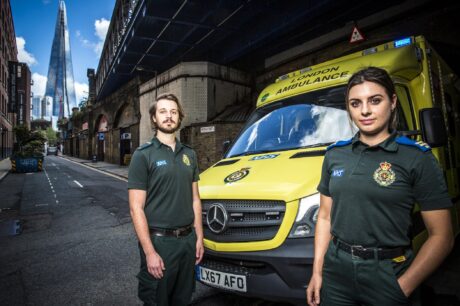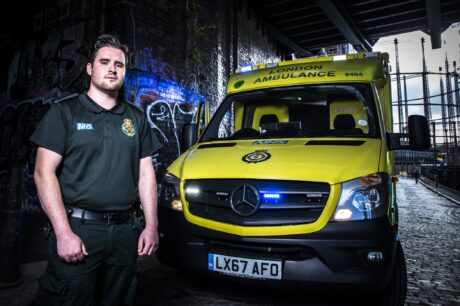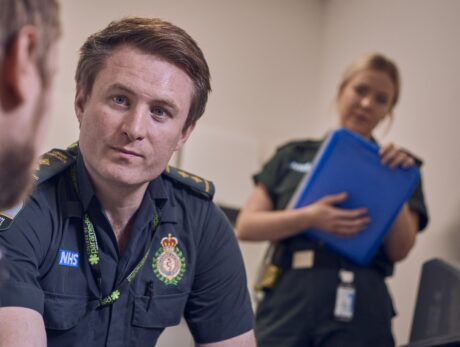Episode 6 of ‘Ambulance’ highlights the growing pressure on ambulance staff responding to mental health patients
The sixth episode of award-winning BBC One documentary ‘Ambulance’ follows London Ambulance Service staff and volunteers as they deal with a rising number of patients suffering from mental ill-health.
Airing this Wednesday (21 October) on BBC One, film crews follow Sarah and her crewmate David as they respond to a distressing call about a patient who has been pulled out of the Thames by a passer-by. They soon come to the heart-breaking realisation that this patient wanted to die. Sarah phones the patient’s best friend to let them know what has happened, and quickly takes the patient to hospital for further tests and mental health support.

Later in the episode Sarah and David are called to a teenager who has been self-harming and is in obvious distress. The crewmates go above and beyond trying to calm her down and help distract her on the way to hospital.
Other patient stories in the episode include Robert, a recovering alcoholic who is being cared for by his mum and dad. However, as time goes on, he reveals to ambulance crewmates Rosie and Keith that he has started drinking again and they see the emotional toll this has on his parents.
Paramedic, Keith said: “It sometimes can feel quite shocking thinking about the sheer amount of mental health patients we are responding to day in and day out.

“Life can be difficult and overwhelming sometimes – that’s why it’s so important for people to reach out and talk to someone they trust. Sometimes one conversation is all it takes for someone to get the help they need when they are struggling.”
A call to 999 is often the first point of care for those in a mental health crisis. Last year alone 168,000 mental health calls were made to London Ambulance Service and staff and volunteers attended over 105,000 incidents where patients were suffering from mental ill-health.
This equates to roughly 8.9% of total incidents the Service attended in the last year.
Mental health incidents across the capital have been steadily rising each year. In 2017 London Ambulance Service recorded over 94,500 incidents where mental health was an aspect. This increased again in 2018 to over 97,600 mental health incidents.
In response to the need for more mental health support for patients, London Ambulance Service has put in place a dedicated mental health team.
The mental health team operates six cars across London, which involve a registered mental health nurse dispatched alongside a paramedic to patients in a mental health crisis.

Since rolling out across London the initiative has made a significant impact on the number of unnecessary trips to emergency departments for patients with a mental health problem. An evaluation found that 80% of patients were discharged at the scene with a more suitable referral or advice for their condition, compared to 41% of patients outside of the scheme.
Mental health nurses also work in London Ambulance Service’s control rooms, where they play a crucial role offering advice on symptoms as well as the best ways staff and volunteers can support these patients. The nurses also help to decide whether the mental health car needs to be dispatched to a 999 call.
Consultant Nurse for Mental Health at London Ambulance Service, Carly Lynch said:
“A busy Emergency Department is not always the right place for someone experiencing a mental health crisis – it can often be an extremely traumatic experience.
“The paramedic and mental health nurse are able to treat both their physical and mental health needs and once they have assessed the patient, they can encourage them to make a GP appointment, refer them to their mental health team, or call an ambulance if they think they need to go to hospital.
“Working with eight mental health trusts across London we are helping to provide expert and compassionate care for those in the midst of a crisis.”

Follow us on social media: